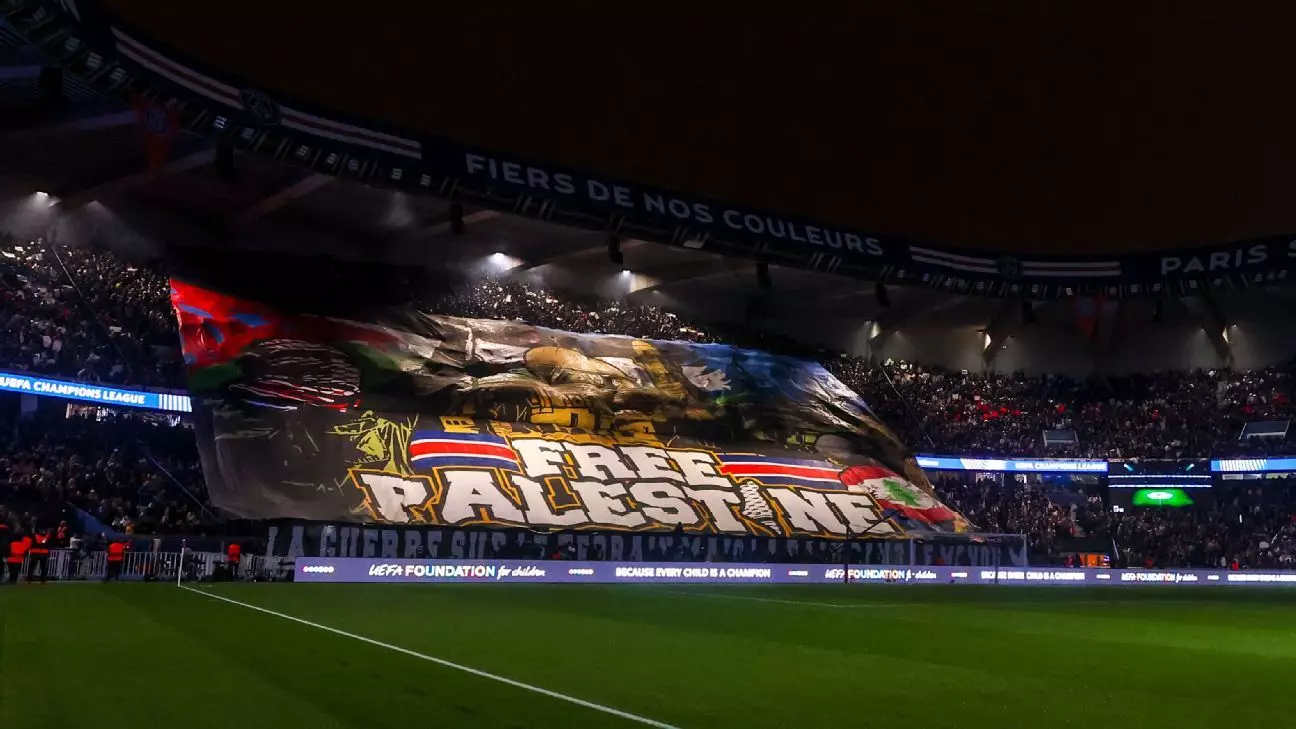In a dramatic display of political expression, fans of Paris Saint-Germain (PSG) unveiled a “Free Palestine” banner just before their Champions League fixture against Atlético Madrid. This controversial gesture not only influenced the atmosphere at the Parc des Princes but also highlighted the complex interplay between sports, politics, and social issues. The banner’s initial unveiling set the stage for an event fraught with emotional resonance, particularly given that France was scheduled to face Israel in an upcoming Nations League match.
The banner’s accompanying message, “War on the pitch, but peace in the world,” complicates the dual identity of sports as both an entertainment medium and a platform for political commentary. This juxtaposition of athletic competition and pressing global issues urges both fans and participants to confront difficult topics through what is typically viewed as an apolitical environment. The second banner—”Does a child’s life in Gaza mean less than another?”—expanded on this sentiment, prompting spectators to reflect on the humanitarian crisis in Gaza without compromising the integrity of the sporting event.
In stark contrast to the passionate display by the fans, PSG swiftly distanced itself from the political implications of the banners. The club emphasized that it had no prior knowledge of the unveiling and reiterated its commitment to maintaining the Parc des Princes as a political-free zone. This response raises critical questions about the role of sports clubs: should they prioritize the enjoyment of fans or the moral obligation to address pressing societal issues? French Interior Minister Bruno Retailleau’s condemnation of the banner as “unacceptable” further underscored the tensions surrounding public expressions of political beliefs in sports venues.
The incident evokes memories of the fine imposed on Celtic last year for displaying Palestinian flags during a Champions League match, raising issues about the consistency of regulatory responses to political messages in sports. The potential for sanctions against PSG, as suggested by Retailleau, points to a chilling effect where individuals and groups may self-censor in the face of legal repercussions. This scenario illuminates a broader discourse on the duality of freedom of expression in public spaces, particularly in a country like France, where a blend of diverse cultural identities intermingles.
As France prepares to host its upcoming match against Israel at the Stade de France, security concerns loom large. The event takes place in a context marked by significant Jewish and Muslim populations, raising alarm over potential unrest. This intersection of sports and national identity sets a backdrop for further discussions on how sporting events can serve as flashpoints for broader societal tensions—making it critical for organizers to navigate this landscape with care.
The recent events surrounding PSG remind us that sports are often a microcosm of society, reflecting its values, conflicts, and aspirations. The banners displayed by Auteuil Kop encapsulate not merely a call for political action but also highlight the complexities that arise when sports and politics collide. As societies continue to grapple with pressing humanitarian crises, the world of sports will invariably find itself at the crossroads of public discourse, compelling us to seek answers that bridge the divide between entertainment and social responsibility.

